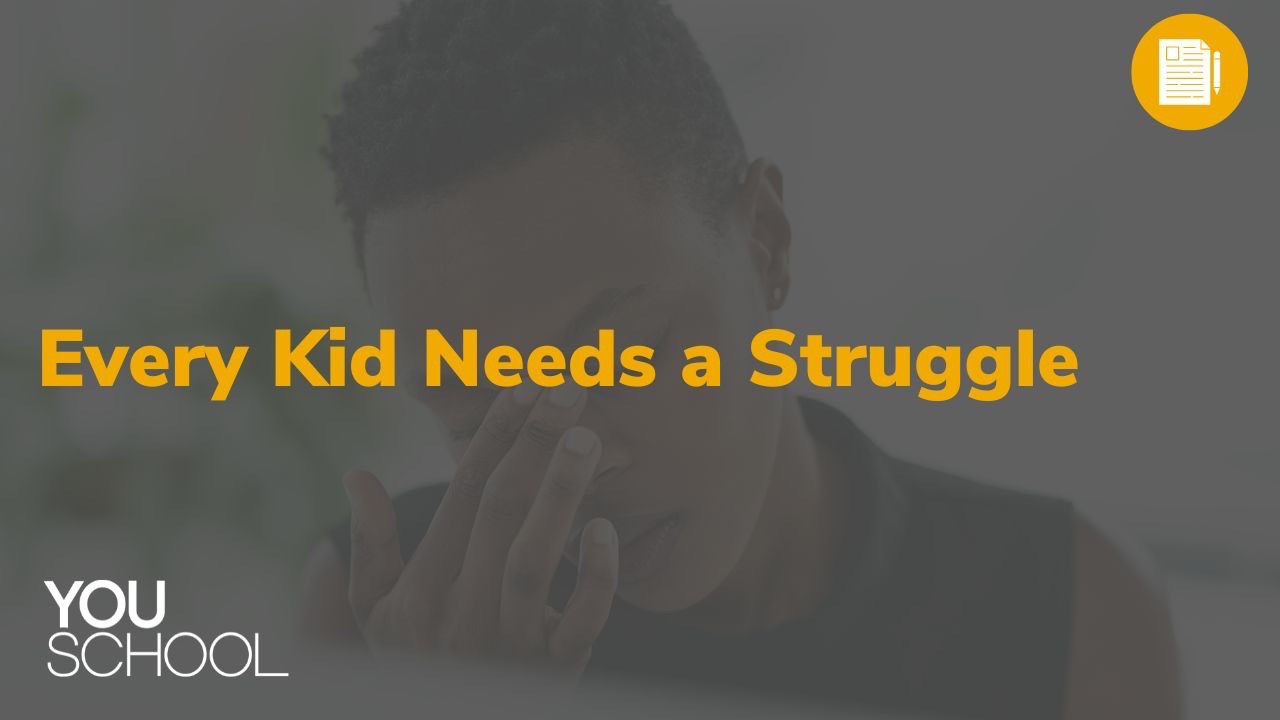Every Kid Needs a Struggle

When I was little, I was diagnosed with a type of learning disability—a language processing issue that made it difficult to recall words to use when I spoke. Generally, it manifested itself when I was nervous or anxious in a social situation, like speaking up in class or around kids I didn’t feel comfortable with yet. I would essentially feel tongue-tied and do my best to remain quiet or get any attention off of me. While I struggled to find the words and muster up the courage to share them out loud, humiliation was the primary threat I felt. If I stumbled or stuttered, I knew I would not only lose my train of thought but potentially be exposed to rejection and mockery by other kids. But I never gave up.
I spent many years going through speech therapy and worked really hard to become confident.
I give much of the credit to my mom, honestly. I’m not exactly sure how she did it, but I always felt convinced that if I kept at it, kept struggling, and leaned into it, I could master it. I could become a clear, confident communicator. She was right. Now, I’m a professional communicator. The years of being quiet and attentively paying attention to social cues and messages underneath the surface and studying people and their motivations have become a great source of strength for me. I look at almost every challenge in front of me with the same confidence I had towards speaking—give me enough time, and if it matters to me, I will figure it out.
My struggle is what shaped me. That’s a timeless truth for me, and I’m sure it is true in your life, too. And it’s also true for our kids.
So if struggling is so formative, then why do we protect our kids from it?
On one hand, I get it. We want to protect them from harm, prevent them from feeling bad about themselves and provide the best context for them to feel loved and supported. But on the other hand, kids cannot and will not grow into who we want them to be without going through a struggle. It’s fact.
Struggling is not suffering but can be confusing and perhaps a slippery slope. Struggling is what helps us become aware of and understand our limitations. It humbles us. Struggling will refine and clarify what’s really important. Confronting our struggles can shape how we see ourselves and our capabilities. It can strengthen our resolve and help us find the fuel that turns into passion. Struggling changes us and makes us better.
I’m not the first to observe that kids today are being raised in a culture that is predisposed to removing obstacles from kids. Many of them are good, appropriate, and just. But perhaps we have a “baby with the bathwater” situation, too, that should prompt us to reflect on the opportunities we have to allow our kids to struggle more than we feel comfortable with.
- What struggles have you faced that shaped you for the better?
- What might keep you from allowing your kids to struggle?
- What’s at stake? What lessons might your kid(s) miss out on if they don’t struggle?
P.S. What if there was a way to get the best resources to impact the kids in your life—delivered to you at the right time?
Check out our memberships for parents and educators.

